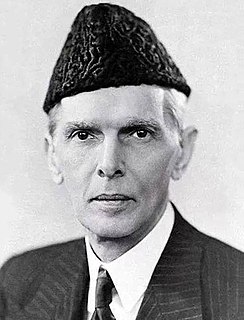A Quote by Adolf Hitler
Our present political world-view, current in Germany, is based in general on the idea that creative, culture-creating force must indeed be attributed to the state.
Related Quotes
...Jabotinsky insisted that all energies be expended to force the Congress to join the boycott movement. Nothing less than a 'merciless fight' would be acceptable, cried Jabotinsky. 'The present Congress is duty bound to put the Jewish problem in Germany before the entire world...(We [Jews] must) destroy, destroy, destroy them, not only with the boycott, but politically, supporting all existing forces against them to isolate Germany from the civilized world...our enemy [Germany] must be destroyed.
On humanitarian intervention in general, I guess my view is not unlike the view that was attributed to Gandhi, accurately or not, when he was supposedly asked what he thought about western civilization. He is supposed to have said that he thought it would be a good idea. Similarly, humanitarian intervention would be a good idea, in principle.
The Western world, in spite of its advantages of mechanization and industrial efficiency is today in a worse mess than ever before in history. The adoption Western economic theory and practice will not help us in achieving our goal of creating a happy and contented people. We must work our destiny in our own way and present to the world an economic system based on true Islamic concept of equality of manhood and social justice.
The very comprehensibility of the world points to an intelligence behind the world. Indeed, science would be impossible if our intelligence were not adapted to the intelligibility of the world. The match between our intelligence and the intelligibility of the world is no accident. Nor can it properly be attributed to natural selection, which places a premium on survival and reproduction and has no stake in truth or conscious thought. Indeed, meat-puppet robots are just fine as the output of a Darwinian evolutionary process.
We grew up creating this whole world view for ourselves because it's not there in the culture. What am I? And I have to build this world view in the absence of books, radio and television, anything, even conversation, Mom or Dad or brother or sister or friends. I have to build a world view of who I am or I go stark, raving mad. Every transsexual in the past has had to do this.
The world understands that our country could solve all conflicts with military solutions, but we won't because we have leaders and we have a moral responsibility but we have also have a political - we have a political leader who is scared and who is raised on the idea that American force is the true evil.
Anarchism is a definite intellectual current in the life of our times, whose adherents advocate the abolition of economic monopolies and of all political and social coercive institutions within society. In place of the present capitalistic economic order Anarchists would have a free association of all productive forces based upon co-operative labour, which would have as its sole purpose the satisfying of the necessary requirements of every member of society, and would no longer have in view the special interest of privileged minorities within the social union.
The fight against Germany has now been waged for months by every Jewish community, on every conference, in all labor unions and by every single Jew in the world. There are reasons for the assumption that our share in this fight is of general importance. We shall start a spiritual and material war of the whole world against Germany. Germany is striving to become once again a great nation, and to recover her lost territories as well as her colonies. But our Jewish interests call for the complete destruction of Germany.
In times of totalitarian or autocratic rule, music (indeed culture in general) is often the only avenue of independent thought. It is the only way people can meet as equals, and exchange ideas. Culture then becomes primarily the voice of the oppressed and it takes over from politics as a driving force for change.
At the present moment in our culture this yearning for meaning and consciousness, this yearning to give and serve something higher than ourselves, is breaking through the hard crust of our widespread cultural materialism and pseudo-scientific underestimation of what a human being is meant to be together with an equally tragic overestimation of what we human beings are capable of in our present everyday state of being. The intensity of the present confusion about the nature and existence of God is a symptom of this yearning within the whole of our modern culture.
To discover how much of our resources must be mobilized for war, we must first examine our political aim and that of the enemy. We must gauge the strength and situation of the opposite state. We must gauge the character and abilities of its government and people and do the same in regard to our own. Finally, we must evaluate the political sympathies of other states and the effect the war may have on them.
[T]here are, at bottom, basically two ways to order social affairs, Coercively, through the mechanisms of the state - what we can call political society. And voluntarily, through the private interaction of individuals and associations - what we can call civil society. ... In a civil society, you make the decision. In a political society, someone else does. ... Civil society is based on reason, eloquence, and persuasion, which is to say voluntarism. Political society, on the other hand, is based on force.











































